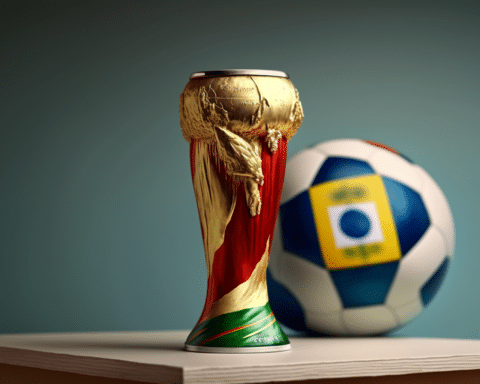FIFA has announced its decision to expand the 2026 World Cup for the second time, with the tournament set to include 48 teams. The inaugural 48-team event will have a bigger group stage, lasting nearly six weeks, and a 104-game schedule, 24 games more than the original 80 games planned.
The final is scheduled for July 19, and the 16 host cities will now have 24 extra games to stage on top of the 80 they already had.
Reasons for Expansion
FIFA made the decision after conducting a thorough review of various factors, including sporting integrity, player welfare, team travel, commercial and sporting attractiveness, as well as team and fan experience.
The expansion will add about 1.5 million more tickets, making the World Cup accessible to more fans. It will also increase FIFA’s expected record revenue of at least $11 billion through 2026.
Concerns Over Expansion
However, FIFA President Gianni Infantino’s push for more games and bigger events in a congested calendar is causing concern among stakeholders such as domestic leagues and players’ union FIFPRO.
Critics argue that the added number of games puts undue pressure on players and threatens the quality of the competition.
New World Cup Format
The new World Cup format will have 12 groups of four teams instead of 16 groups of three, guaranteeing every World Cup team will play a minimum of three times.
The group stage will have 72 games, and the knockout rounds will have 32 games, resulting in a total of 104 games for the tournament. The four semifinalists will play eight matches, one more than in the 2022 World Cup.
Infantino’s Strategic Win
Increasing the World Cup’s lineup was first proposed in 2015 to sweeten FIFA’s 200-plus member federations into accepting governance reforms after investigations of corruption.
FIFA President Gianni Infantino’s first big strategic win was adding 16 teams to the World Cup, persuading colleagues that a 48-team tournament would fuel interest and drive development in countries that rarely or never qualified.
Uncertainty for Teams Placing Third in a Group
The 48-team format creates uncertainty for teams placing third in a group, as eight of the 12 third-place teams will advance. Europe’s 12 entries can be decided by a ranking system based on the same four-year period, with a cap of two teams per country advancing with exemptions for continental champions.
Other Competitions
The 32-team Club World Cup, which may also be held in North America, will be launched by FIFA one year prior to the six-week World Cup. Teams will enter the 2025 Club World Cup, including Chelsea, Real Madrid, Palmeiras, Flamengo, and Seattle Sounders. Starting from 2024, FIFA intends to introduce a new competition that will take place annually and feature continental champions.
The 2026 World Cup is set to earn up to $3 billion for FIFA and break the tournament attendance record. FIFA’s own research in 2016 suggested that the highest quality soccer was achieved by the 32-team format. In Qatar, the split-screen drama created by decisive group games played simultaneously helped convince FIFA that four-team groups are better, and scheduling groups of three could lead to match-fixing. FIFA has now found an option that “mitigates the risk of collusion” and also gifts itself more games to sell. The extra 24 games should drive up the price of sponsor and broadcasting deals, but some key broadcast markets are already signed, including in the United States, Brazil, and the Middle East.




